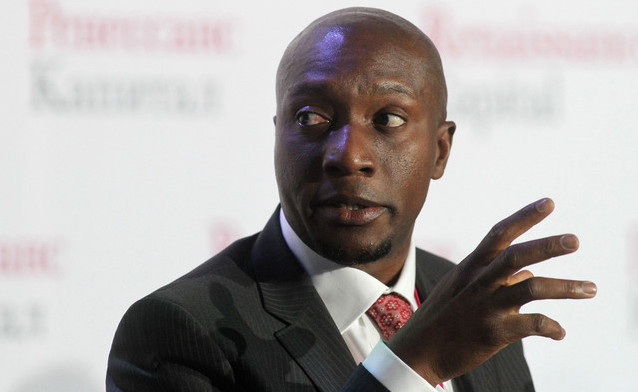NSE’s listing fees grow by 110 pct to ₦1.71 billion

The Nigerian Stock Exchange (NSE) raked in ₦1.71 billion from listing fee in 2017 as against ₦0.81 billion reported in 2016, accounting for a growth of 110 per cent.
In a report obtained by correspondent, total income to the group amounted to N8.30 billion, up 86 per cent from 2016.
The Chief Executive Officer of NSE, Mr. Oscar Onyema, said listing fees appreciated by 110 per cent compared to 2016 and the improvement in the earnings indicated a revival in primary market activity from the lacklustre performance of the previous year.
He said: “This was mainly driven by rejuvenation in trading activity following the introduction of the market-based foreign exchange regime in April 2017. Buoyed by improved ease of market entry and exit for foreign portfolio investors, transaction fees jumped 130 per cent year-on-year to ₦3.6 billion, accounting for 45 per cent of the group’s total income in 2017.
“Last year, we reiterated the need to diversify the Exchange’s income streams and I am pleased by the positive results we have recorded in this regard. Our market services business consisting of technology and market data services continue to perform impressively.
More telling is the fact that market services income has continued to grow despite the market down-cycle, which significantly impacted our core trading and listing businesses in 2015 and 2016.”
The NSE boss noted that in recognition of this, “we will continue to invest heavily in developing our market services portfolio and providing innovative products and services that are less correlated with market cycles and, more importantly, global oil prices.”
He noted that with the gradual improvement in economic conditions, it became necessary to loosen Exchange’s tight expenditure control to enable it take advantage of opportunities that availed themselves during the year.
“Accordingly, the Group’s total expenses increased by nine per cent year-on-year as we relaxed some of the strict budgetary controls, including the Cost Monitoring Committee we deployed in response to the strong economic headwinds of 2015 and 2016.”
He stated that the Group recorded an operating surplus after tax of ₦3.79 billion in 2017, representing a 13,712 per cent increase over 2016’s modest operating surplus after tax of ₦27.45 million.
Accordingly, this, he said, has had a positive translation effect on the Group’s financial position evidenced by the 19.30 per cent appreciation in its net assets to ₦23.13 billion as at December 31, 2017.
Speaking on outlook of the NSE, Onyema said: “On its part, the NSE has worked very hard to reassess its strategic agenda in the light of changing dynamics in both the operating environment and the global exchange landscape against the backdrop of the fourth industrial revolution.
Consequently, he said the NSE developed a new corporate strategy for the 2018-2021 periods with three key focus areas of delighting customers across the value chain; boosting our retail segment penetration and enhancing NSE’s organisational agility to support our evolving strategic ambitions.
Onyema noted that the Exchange has also begun to see gains from monetising the market services, adding that the local bourse has the capacity to support exchange-hosting services to Xchanges within Nigeria and the rest of Africa, and continues to increase revenues from market data sales via new opportunities.
“We responded to the growing demand for simple and cost-effective means of data delivery to our clients by developing our Market Data Application Programming Interface (API), which will significantly simplify mobile applications and so on including business-to-business (B2B) integration of our market data into clients systems for use on their websites.









0 Comments